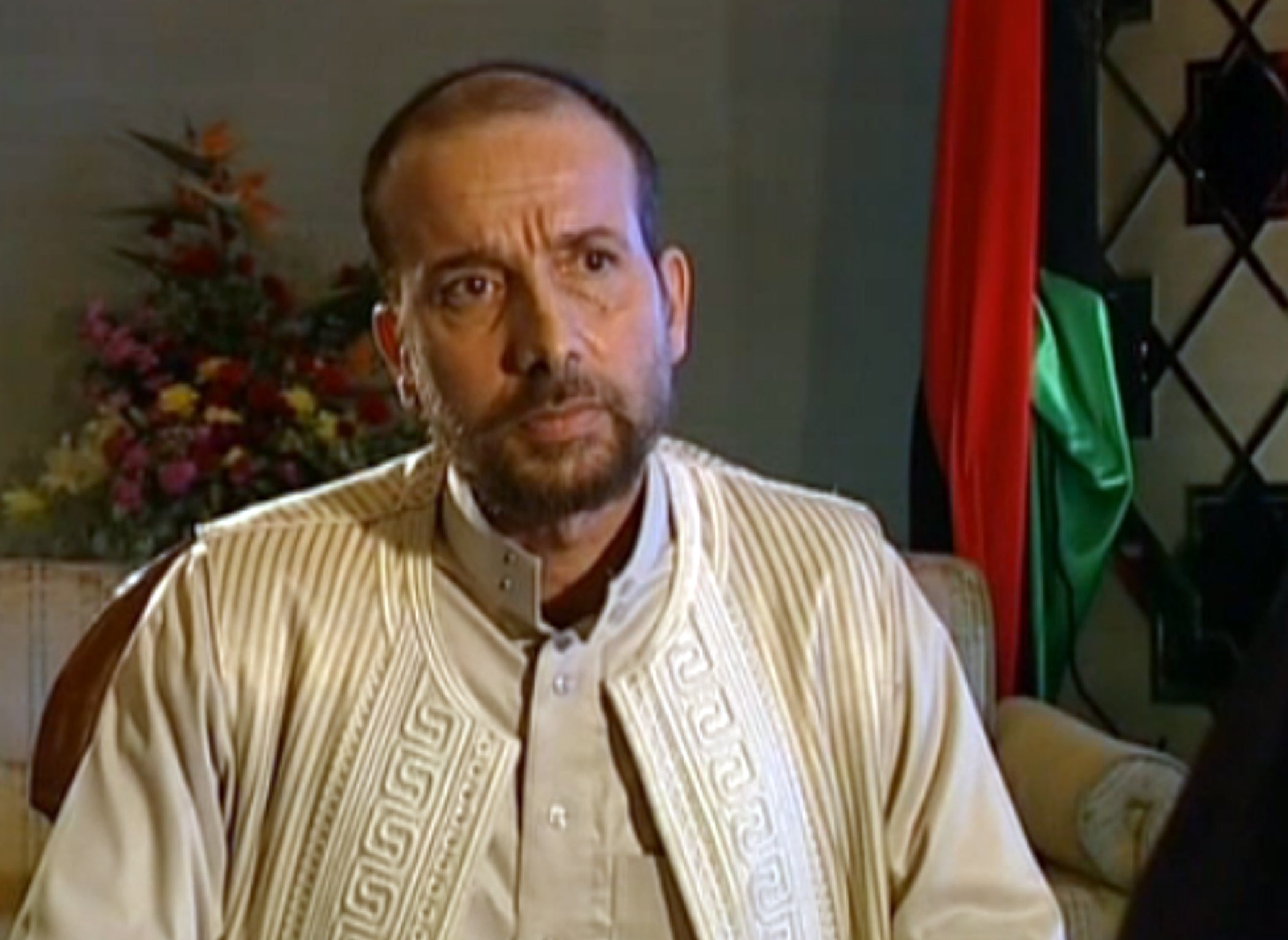Libyan dissident gets £2.2m payout from Government over rendition to Libya
Sami al-Saadi, a leading Gaddafi opponent, was imprisoned and tortured after he was forced to board a plane back to Tripoli

A Libyan dissident who claimed MI6 played a key role in his rendition to Tripoli where he was tortured and imprisoned by the Gaddafi regime has agreed to a £2.2m payout from the British government.
Sami al-Saadi, who claims he, his wife and four children, were forcibly returned from Hong Kong to Libya with the help of British agents, said he was accepting compensation because his family “had suffered enough”.
The settlement is similar to the multi-million pound payout made by the Government to British inmates at Guantanamo Bay to avoid a lengthy and potentially embarrassing court case which could have revealed the level of British intelligence’s co-operation with despotic regimes.
Although Mr Saadi has accepted compensation, a second Libyan dissident, Abdulhakim Belhaj, has vowed to continue with his legal challenge. Mr Belhaj, an Islamist dissident who claims he was sent with his pregnant wife from Thailand to Libya, became commander in the revolutionary forces that overthrew Muammar Gaddafi in 2011.
His legal battle could shed light on the role MI6 played in relation to Gaddafi’s government following the 2004 “deal in the desert” made by the then Prime Minister Tony Blair. This brought the Libyan dictator in from the cold and encouraged Gaddafi to abandon his weapons of mass destruction programme in return for investment and help in tracking down opponents of his regime.
Mr Belhaj is suing the former Foreign Secretary, Jack Straw, and a former senior MI6 official, Sir Mark Allen, as part of his action. Both deny any wrongdoing.
Reacting to the Saadi settlement last night, Mr Straw said: “At all times I was scrupulous in seeking to carry out my duties in accordance with the law, and I hope to be able to say much more about all this at an appropriate stage in the future.”
Under the terms of the Saadi settlement, the Government has not accepted liability. But papers found in the office of Gaddafi’s former spy-chief Moussa Koussa suggested US and British intelligence colluded in the rendition of both Mr Saadi and Mr Belhaj.
CIA correspondence discussing Mr Saadi’s rendition stated: “We are … aware that your service had been co-operating with the British to effect [al-Saadi’s] removal to Tripoli … the Hong Kong government may be able to co-ordinate with you to render [al-Saadi] and his family into your custody.”
A letter from MI6’s then head of counter-terrorism Sir Mark Allen referred to Mr Belhaj’s rendition. “I congratulate you on the safe arrival of [Belhaj].
This was the least we could do for you and for Libya,” the letter read. “I know I did not pay for the air cargo [but] the intelligence [on him] was British.”
In a statement, Mr Saadi explained why he had accepted a payout. “[My children] will now have the chance to complete their education in the new, free Libya,” he said. “I will be able to afford the medical care I need because of the injuries I suffered in prison. I started this process believing a trial would get to the truth. But today, with the Government trying to push through secret courts, I feel to proceed is not best for my family.”
Deal in the desert: The players
Tony Blair:
The British Prime Minister flew to Libya in 2004 and – in a desert tent surrounded by camels – welcomed Colonel Muammar Gaddafi in from the cold, right. The “deal in the desert” pesuaded Gaddafi to give up his WMD programme in return for investment and co-operation in catching violent jihadists opposed to his brutal regime.
Jack Straw:
Jack Straw As Foreign Secretary at the time of Mr Belhaj and Mr Saadi’s rendition to Libya, questions have been asked about how much he knew of the level of co-operation between Libyan and British intelligence. Mr Belhaj has launched a legal action against Mr Straw, below, who denies any wrongdoing and insists he followed the law.
Sir Mark Allen:
A career spy and Arabist, he was head of MI6’s counter-terrorism unit at the time of Mr Belhaj and Mr Saadi’s rendition and is also being sued by Mr Belhaj. He has since left the secret service.